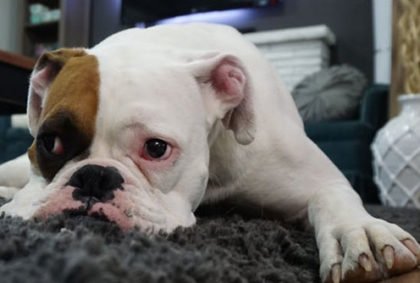Thunderstorms and Fireworks: How to Calm an Anxious Pet


Summer celebrations and thunderstorms may be exciting for humans—but for pets, they can be deeply distressing. The sudden loud noises, bright flashes, and vibrations from fireworks or storms often trigger fear-based behaviors, such as trembling, hiding, barking, or even escaping. July is one of the busiest months for lost pets due to fireworks, making it crucial for pet parents to be proactive.
Why do these events cause such distress? Dogs and cats have much more sensitive hearing than humans. A sound that seems loud to us can feel overwhelming to them. Unlike us, pets don’t understand what’s happening, and their instinct is to flee or find shelter. This response can lead to destructive behavior, injury, or attempts to escape home or the yard.
Start by creating a safe, quiet space for your pet during fireworks or storms. This could be a windowless room, a basement, or a covered crate with their favorite blanket or toy. Calming music or white noise can help drown out the frightening sounds outside. Keep curtains closed to block flashes of light and offer treats or toys to distract them.
Your calm presence also matters. If you’re home, sit with your pet and speak in a reassuring voice. Avoid punishing fearful behavior or overly coddling—both can reinforce anxiety. Instead, remain calm and neutral. If your pet prefers to hide, allow them that space until they feel safe again.
For pets with moderate to severe anxiety, consider anti-anxiety tools. ThunderShirts (pressure wraps) can provide comforting pressure, similar to swaddling a baby. Pheromone diffusers, sprays, and calming collars release soothing scents that mimic natural chemicals pets produce when they feel safe.
There are also a variety of vet-approved calming supplements made from natural ingredients like L-theanine, melatonin, or CBD. Always talk to your veterinarian before introducing any new product. In some cases, prescription anxiety medications may be necessary for extremely anxious pets.
Microchipping is a critical step for pet safety during noisy summer events. Collars and tags can fall off, but a microchip is permanent identification that can help reunite you with your pet if they escape during a panic episode. Also, double-check that your pet’s ID tags have your current contact info.
If you're hosting a party or BBQ around fireworks time, make sure guests are aware of your pet’s needs. Secure all doors, fences, and gates to prevent accidental escapes. Inform visitors not to feed your pet scraps, which could upset their stomach or cause toxicity.
Desensitization training is a long-term approach that may reduce noise anxiety. This involves gradually exposing your pet to recordings of fireworks or storms at a low volume and rewarding calm behavior. Over time, you increase the volume while reinforcing positive associations. This process takes patience and consistency, and professional training help is often recommended.
Keep in mind that even confident pets can become fearful when caught off-guard by noise. Always monitor your pet closely during holidays like the Fourth of July, or during local events with fireworks.
Summer should be a joyful season for the whole family—including your pets. Contact Grace Animal Hospital at 116 Collins Crossing Road,Holly Springs, NC 27540 or call us today at 919-346-0285. With a little preparation and awareness, you can help your dog or cat weather the storm (or celebration) in comfort and safety.



















